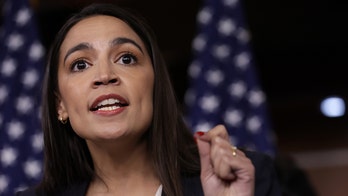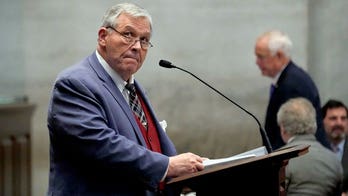PANAMA CITY (AP) – President Barack Obama says Brazilian President Dilma Rousseff will visit Washington this summer, nearly two years after she canceled a similar trip to protest U.S. spy programs.
Rousseff canceled a state visit to the U.S. in the fall of 2013 to protest an American spy program that targeted Brazil's government and citizens.
Brazilian media revealed that Rousseff's communications with aides were intercepted and that the U.S. National Security Agency hacked the computer network of the state-run oil company and separately had scooped up data on billions of emails and telephone calls flowing through Brazil.
Rousseff says she is pleased by the invitation and looks forward to trip. It is not expected, though, to include the pageantry associated with a state visit.
Her visit is set for June 30.
In Brazil, Rousseff is facing nationwide demonstrations calling for her impeachment for the second day in less than a month, though turnout at Sunday's protests appeared less than the one in March, prompting questions about the future of the movement.
A poll published over the weekend suggested the majority of Brazilians support opening impeachment proceedings against Rousseff, whose second term in office has been buffeted by a corruption scandal at Brazil's largest company, oil giant Petrobras, as well as a stalled economy, a sliding currency and political infighting. Only 13 percent of survey respondents evaluated Rousseff's administration positively.
Sunday's protests, which took place in cities from Belem, in the northern Amazonian rainforest region, to Curitiba in the south, were organized mostly via social media by an assortment of groups. Most were calling for Rousseff's impeachment, but others' demands ranged for urging looser gun control laws to a military coup.
While last month's protests drew substantial crowds in several large cities, Sunday's turnout was lackluster.
In Rio, several thousand people marched along the golden sands of Copacabana beach, many dressed in the yellow and green of the Brazilian flag. The March 15 protest, by contrast, drew tens of thousands.
In the opposition stronghold of São Paulo, about 100,000 people marched on the city's main thoroughfare, according to an estimate by the respected Datafolha polling agency. The crowd was less than half the size of last month's demonstration here, when more than 200,000 people turned out, making it the biggest demonstration in São Paulo since 1984 rallies demanding the end of the military dictatorship.
"I was on the avenue on March 15 and without a doubt, today's demonstration was much smaller," said Antonio Guglielmi, a 61-year-old sales representative for construction materials company, vowing, "I will keep coming back to demonstrations like this one — big or small — because it is the best way for us to make our voices heard and demand an end to the Dilma government and the PT and end to corruption. The country cannot go on like this."
Still, many analysts predict that lower turnout Sunday protests could spell the end of the movement.
"I do not think we will see the protest movement grow in size and frequency," said Carlos Lopes, a political risk analyst at Brasilia office of the Insituto Analise consultancy. Given Sunday's smaller turnout, "people will be less inclined take part in future demonstrations and the movement toward large-scale rallies will begin to fizzle out."
One of the heads of the Movimento Brasil Livre, or Free Brazil Movement, which helped organize Sunday's demonstrations rebuffed the suggestion that turnout was down, stressing that many more cities and towns staged protests than last month.
A survey released Saturday by the Folha de S.Paulo daily found that 63 percent of Brazilians surveyed supported impeachment proceedings against Rousseff, while 33 percent opposed them. The same poll, by Datafolha, showed Rousseff's approval ratings holding steady, with 13 percent of respondents giving her a great or good rating while 60 percent of respondents evaluated her performance as bad or terrible. The survey of 2,834 people in 171 municipalities was conducted on Thursday and Friday. It had an error margin of plus or minus 2 percentage points.
Much of the protesters' ire focused on the Petrobras scandal. Prosecutors say at least $800 million was paid in bribes and other funds by construction and engineering firms in exchange for inflated Petrobras contracts. Rousseff, a former chairwoman of Petrobras' board, has not been implicated and so far is not being investigated, though two of her former chiefs of staff are among the dozens of officials caught up in the inquiry.
One president, Fernando Collor de Mello, has been impeached since Brazil's return to democracy in 1985, but many legal experts have said that Rousseff could only be impeached if evidence emerges directly linking her to crimes committed during her second term, which began in January.




